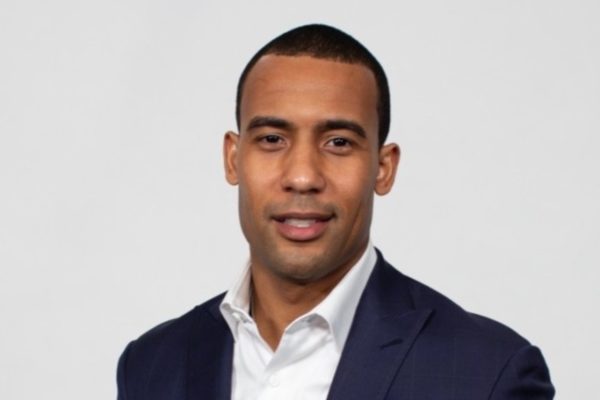As a senior leader with an investment firm, Trevor Rozier-Byrd was a rare Black Wall Street executive. In fact, he held that position at one of the world’s largest investment firms: State Street Corp. With 20 years of experience in the asset management industry under his belt, Rozier-Byrd is now bringing his business and investment expertise to Stackwell, his robo-investing app specifically targeted to African-American investors in the U.S. The app is slated to launch in early 2022.

A Robo-Advisor Explained
A computer program that picks stocks for investors to add to their portfolios, a robo-advisor often charges less than 1 percent of a client’s portfolio every year, and that’s less than the 3 percent charged by traditional brokerage firms — while a computer program picks stocks, financial advisors and wealth managers, and many of the robo-advisor apps are from white-owned brokerage firms.
How Stackwell Caters to Black Investors
“Stackwell has an entirely Black management team that personally knows and has experienced many of the social, emotional and cultural barriers that have resulted in underinvestment in the Black community,” Rozier-Byrd told Finurah. What makes Stackwell different, said the app’s creator, is that it was specifically designed to “address and remove those barriers to entry to promote greater market participation by members of the Black community.”
He added, “Stackwell’s portfolios were selected and will be managed by members of our management team. Over time, we will look to tailor investment solutions that focus on supporting Black-owned companies, founders and fund managers.”
Rozier-Byrd wants Stackwell to be the go-to app for Black investors. “Our aspiration is to be the preferred partner for the end-to-end banking and financial services needs of people in the Black community. Following the release of our robo-advisor offering, we will look to integrate other financial products and services that enable our users to meet their long-term wealth-building goals and objectives, delivered in honest, transparent and fair ways,” said Rozier-Byrd.
Rozier-Byrd Started Stackwell to Open Investment to Black Investors
Rozier-Byrd wants to open the world of investing to other Black investors. “As a lawyer and business executive in the asset management industry, I’ve spent my career witnessing first-hand the stock market’s ability to create growing, long-term wealth,” shared Rozier-Byrd. “These experiences helped me realize that there was a better way to help more people in our community grow and amass their wealth — a way that was predicated on us having greater agency and control to direct our own outcomes.”
Rozier-Byrd Wants to Help Close Black-White Racial Wealth Gap
Rozier-Byrd started the Stackwell app to help Black investors close the racial wealth gap through investing. Rozier-Byrd noted that investing is a path to wealth for white Americans and should be for Black Americans. While white families had a median wealth of $88,000 in 2019, Black families had a median wealth of only $5,000, according to the Federal Reserve of St. Louis.
“A recent study by the Federal Reserve found that the wealthiest 10 percent of American households now own 89 percent of all U.S. stocks, and the top 1 percent gained over $6.5 trillion in wealth through the market during the pandemic. To put it simply, the rich are using the market to get richer. It’s time for more of us in the Black community to do the same,” said Rozier-Byrd.
“To further put the power of investing in context, over the last 30 years, the S&P 500 — the index that tracks the stock value of America’s 500 largest companies — returned on average more than 8 percent per year,” he continued. “At that rate, doing nothing more than investing $1 a day for the next 30 years would result in an individual having $45,000 at the end of the period — nearly two times more wealth than the median Black family has today, which would almost cut the racial wealth gap in half on an individualized basis.”
Rozier-Byrd feels the stock market could be an equalizer for Black investors to build wealth.
“What has always stood out to me is that there is no gatekeeper to the financial markets: who gets to decide who gets in and who stays out, or to put it another way, who gets to build wealth through investing and who does not,” said Rozier-Byrd.
“In my eyes, the market represents the opportunity for the type of freedom that has eluded us for so much of our history in this country and offers a powerful way to let our money work for us to compound our wealth over time. It is for these reasons that I founded Stackwell—to build a solution focused on empowering a new community of Black investors that could harness the power of the market to grow their wealth over the long term,” added Rozier-Byrd.
Black Investors: A Growing Demographic
Even though African-Americans were locked out of investing before, that is gradually changing. An Ariel-Schwab Black investor survey noted that 63 percent of Black Americans under 40 are investors. Rozier-Byrd wants to reach that demographic, as he said that Stackwell will cater to millennial Black investors who want to build a community.
“In order to change the status quo, we need a different solution — a solution that is made for, and by us, that is focused on encouraging and empowering more people to participate in the market with better products, investment tools and information. Additionally, we are focused on creating a community of Black investors that supports one another and values the importance of collective achievement as it relates to the accumulation of wealth over the long-term. Stackwell will do just that,” said Rozier-Byrd.
Stackwell App Offers Financial Education for Investors
In addition to robo-advising, Stackwell will offer financial educational services to investors, including content specific to guide Black investors.
“The Stackwell app will feature educational content geared towards enhancing our users’
understanding of investment fundamentals and guiding them to stronger financial health across their broader health. Our content will be delivered in the form of articles, stories and alerts, and will be designed to promote better investment and financial decision-making over time,” added Rozier-Byrd.




